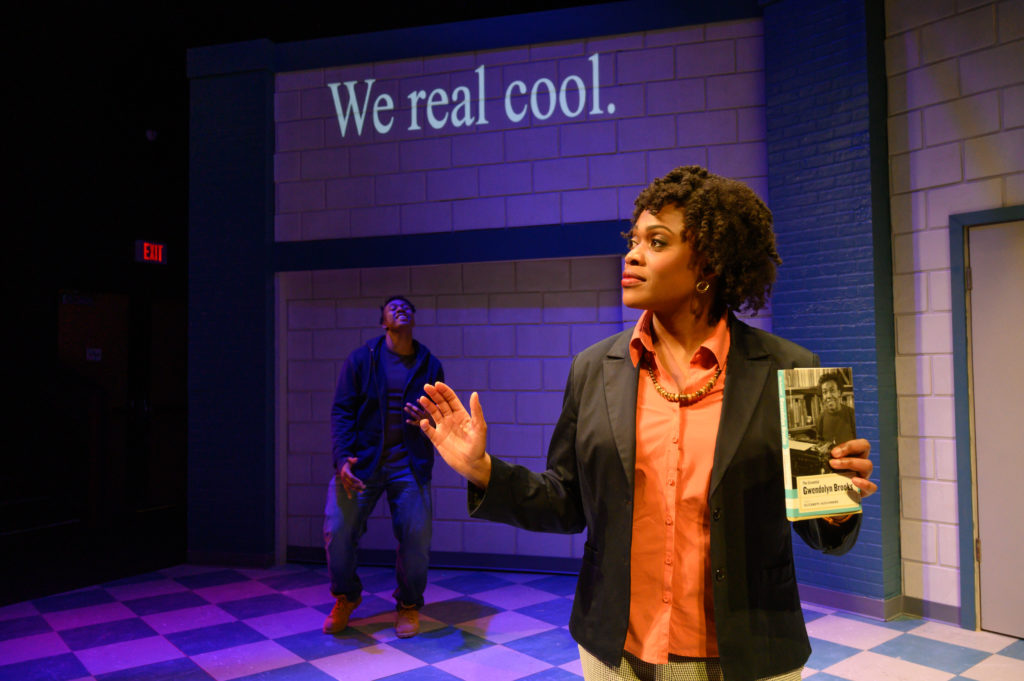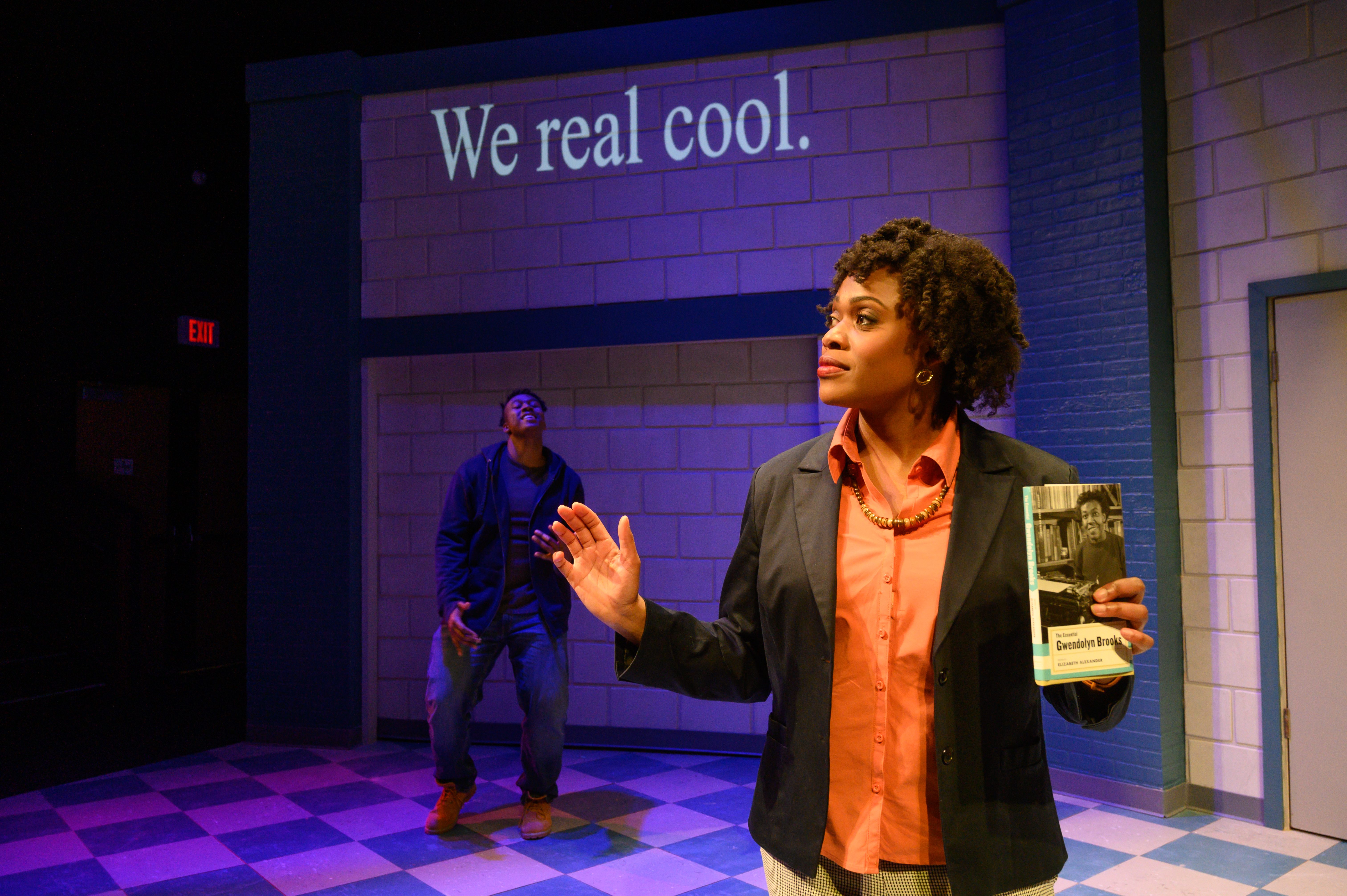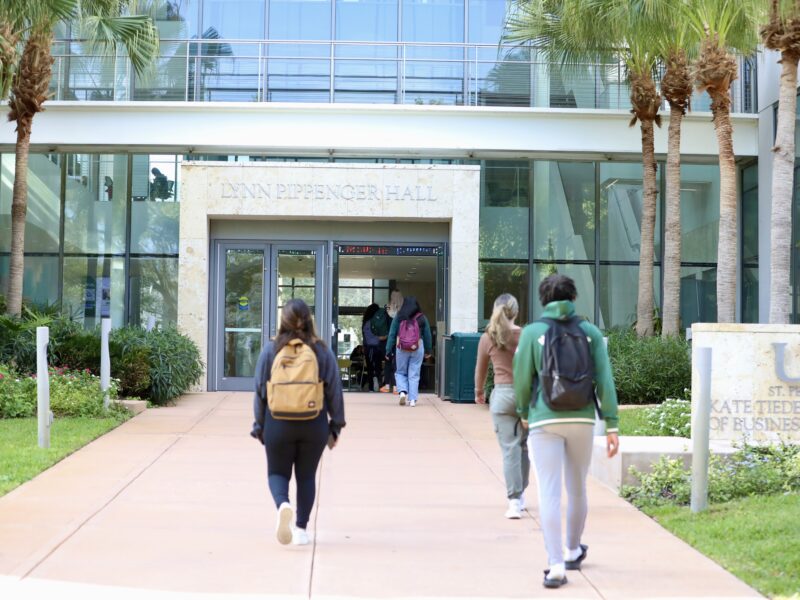
By Anna Bryson
Debuting at the American Stage Theater, just in time for Black History Month, is “Pipeline,” a heartfelt play by Dominique Morisseau, directed by L. Peter Callender.
When you watch “Pipeline” at American Stage, you’ll feel as if you’re in a high school classroom. Whether being back in high school evokes positive memories is up for debate.
Your teacher, Nya, is reading a poem to the class: “We real cool” by Gwendolyn Brooks. This selected poem from Bean Eaters by Brooks may sound familiar if you paid attention in English class.
We real cool. We
Left school. We
Lurk late. We
Strike straight. We
Sing sin. We
Thin gin. We
Jazz June. WeDie soon.
Die soon.
Nya’s son, Omari, appears onstage in a dream-like way –– not literally in the classroom but somehow strangely connected, in the way a memory is connected to a dream. Omari hauntingly reads the words aloud and suddenly, in a moment of terror, Nya can’t breathe and runs out of the classroom.
The poem is symbolic of her worst fears about her son –– that he is going to die.
Omari is the typical mugshot you see in the news. He is the face of young, black rage. He is dangerous. Criminal. You’re conditioned to be afraid of him.
He’s in the hotly debated school-to-prison pipeline. We know this pipeline; we see it in our news feeds every day.
He attacked his teacher in class as other students took videos that went viral. He’ll likely go to jail.
In 90 minutes, playwright Dominique Morisseau explores the complicated issues of race in education. But for once, the story isn’t dehumanizing.
You will cry with Omari and his mother. You’ll shake when you watch Nya have a panic attack. You will feel the humanity, and it will haunt you. You will realize that every story you’ve been fed about young, black male criminals is far more complicated than a mugshot and an arrest report.
The story isn’t just one story –– it’s many people’s.
It’s a reflection of the school-to-prison pipeline, which throughout the play, we learn is systemic. It’s not solely about the student, the teacher or the parents. It’s about the structure that has created and allowed so many students to go down this path — the entire community of children, parents, leaders, police officers and teachers.
Morisseau said her play was inspired by the murder of 18-year-old Michael Brown in Ferguson five years ago.
“Pipeline” runs through Feb. 24 at American Stage, 163 Third St. N. in downtown St. Petersburg.
The play is part of American Stage’s “LIFE. OUT. LOUD.” theme of the 2018-2019 season. American Stage has committed itself to telling stories that honor diversity and celebrate shared human experience.
Nya is played by Gillian Glasco, who is known for her roles in “Going in Style” (2017), “Young Gods of the New City” and “Jessica Jones” (2015). Throughout the play, Nya is portrayed as a guilt-stricken mother trying to find a way to keep her only son safe from the world.
Omari is skillfully played by Andrew Montgomery Coleman, making his American Stage debut. A graduate of North Carolina A&T State University, this young talent will be one to watch.
Playwright Dominique Morisseau has many accomplished plays under her belt. She is a busy woman, not only as a playwright, but also as the bookwriter for the new musical “AIN’T TOO PROUD – THE LIFE AND TIMES OF THE TEMPTATIONS.”
Morisseau’s work has been commissioned by Steppenwolf Theater, Women’s Project and other entities, and has been the recipient of numerous awards.
Callender relates to “Pipeline” on a personal level, he said in the playbill. He knows just how Omari felt. Growing up in the Bronx with a single mother who worked multiple jobs and did her best keep Callender out of the aforementioned “school-to-prison-pipeline,” Callender feels for his childhood friends who fell victim to it.
Black youth are the demographic most often targeted by the “school-to-prison-pipeline,” some being targeted as early as third grade, according to the playbill. Callender directed this play with a personal feeling; the characters in this play tug on the heartstrings of both the young and old.
Fear not, college students. Enjoying a night at the theatre is not as expensive as you might think. Anybody under 20 can receive free tickets to American Stage’s full mainstage season.
For those under 30, American Stage offers a “Netflix-style” subscription, offering unlimited theater for $15 a month. This includes productions at the mainstage, in the park, improvisation, cabaret and more.
Call the box office at 727-823-7529 or visit americanstage.org for more information.



